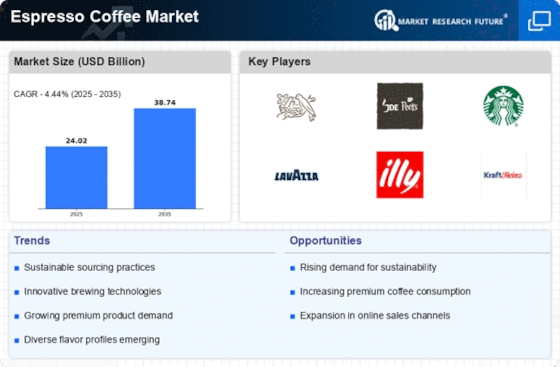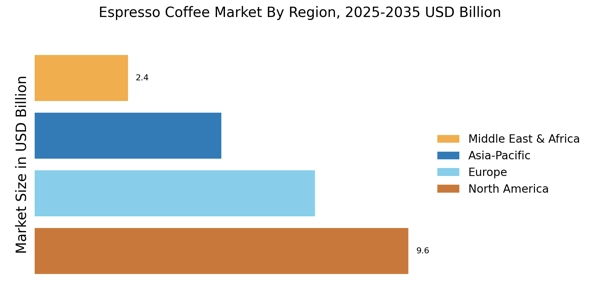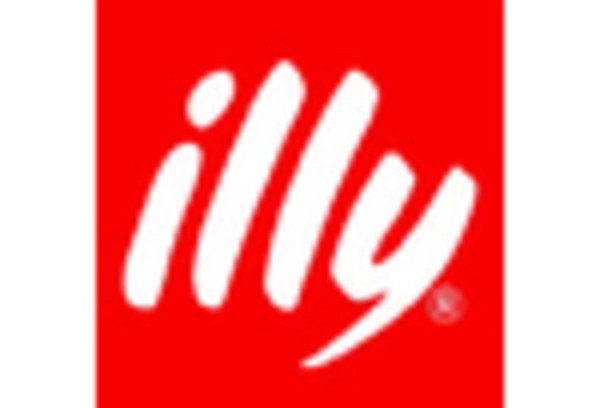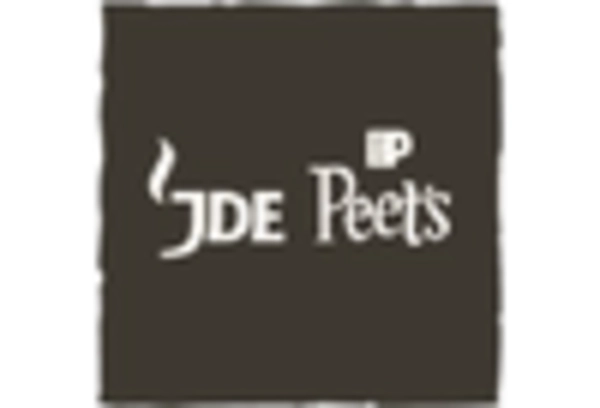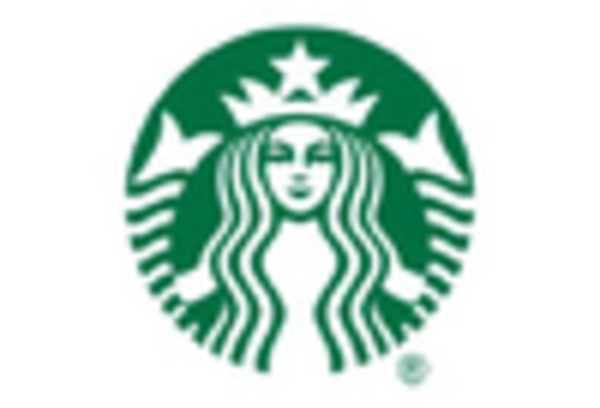Health Consciousness Among Consumers
The rising health consciousness among consumers is influencing the Espresso coffee Market Industry in various ways. Many individuals are becoming more aware of the health benefits associated with moderate coffee consumption, including improved cognitive function and potential antioxidant properties. This trend is leading to an increase in the consumption of espresso-based beverages, as consumers seek healthier alternatives to sugary drinks. Market Research Future suggests that the demand for low-calorie and organic espresso options is on the rise, with a significant portion of consumers actively seeking products that align with their health goals. This shift is likely to shape product offerings within the Espresso Coffee Market Industry, as brands adapt to meet evolving consumer preferences.
Increasing Demand for Premium Coffee
The Espresso Coffee Market Industry is experiencing a notable surge in demand for premium coffee products. Consumers are increasingly seeking high-quality espresso, which is often associated with artisanal and specialty coffee brands. This trend is driven by a growing appreciation for coffee as a craft beverage, leading to a rise in the number of specialty coffee shops and cafes. According to recent data, the premium coffee segment is projected to grow at a compound annual growth rate of approximately 8% over the next five years. This shift towards premiumization is likely to influence the Espresso Coffee Market Industry, as consumers are willing to pay a premium for superior taste and quality.
Growth of Coffee Culture and Socialization
The growth of coffee culture and socialization is a key driver for the Espresso Coffee Market Industry. Coffee has increasingly become a social beverage, with consumers gathering in cafes and coffee shops to enjoy espresso drinks. This trend is particularly pronounced among younger demographics, who view coffee consumption as a lifestyle choice. The rise of social media platforms has further amplified this phenomenon, as consumers share their coffee experiences online. Market data indicates that the number of coffee shops has increased by approximately 10% annually, contributing to the expansion of the Espresso Coffee Market Industry. This cultural shift is likely to continue, fostering a vibrant community around espresso consumption.
Sustainability Initiatives in Coffee Production
Sustainability initiatives in coffee production are becoming increasingly relevant to the Espresso Coffee Market Industry. Consumers are showing a growing preference for ethically sourced and environmentally friendly coffee products. This trend is prompting coffee producers to adopt sustainable practices, such as fair trade certification and organic farming methods. Market analysis reveals that sales of sustainably sourced coffee have risen by over 20% in recent years, indicating a strong consumer demand for transparency in sourcing. As sustainability becomes a core value for many consumers, it is expected that the Espresso Coffee Market Industry will continue to evolve, with brands prioritizing ethical practices to attract environmentally conscious buyers.
Technological Advancements in Brewing Equipment
Technological innovations in brewing equipment are significantly impacting the Espresso Coffee Market Industry. The introduction of advanced espresso machines, which offer enhanced features such as precision temperature control and automated brewing processes, is attracting both professional baristas and home users. These advancements not only improve the quality of espresso but also enhance the overall brewing experience. Market data indicates that the sales of high-end espresso machines have increased by over 15% in the past year, reflecting a growing consumer interest in home brewing. As technology continues to evolve, it is expected that the Espresso Coffee Market Industry will further benefit from these innovations, leading to increased consumer engagement.


